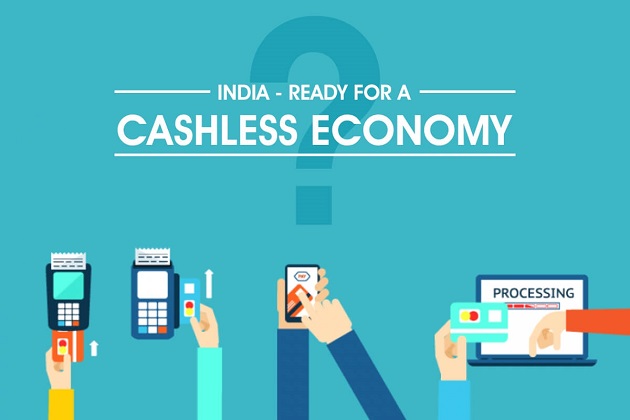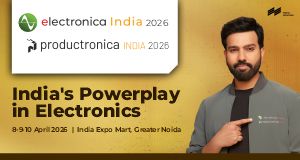If one were to opine about the ploy of the times, the explanation would be rather simple: we live in a world that moves quickly, a world that no longer follows the customs of an evolutionary change. It rather thrives on the concept of revolution. When Indian Prime Minister Narendra Modi demonetized the nation’s high value currency denominations in 2016, it was nothing short of a revolution. While onlookers believed that the move in itself was to tackle the black money freely-flowing in the economy, economists predicted a different narrative attached to it; the narrative of converting India into a cashless economy.
The vision of accepting economic digitisation, in a third world nation like India, points towards the fact that we as a bunch have come a long way. And that has been propelled only because of the technological advancements the world has made. In fact, there has been a sort of a digital disruption in the way payments are made around the world. The 21st century has seen the portmanteau of fintech spread its wings to encompass things that were previously thought unfathomable.
The way technology has progressed over the last decade or so has been nothing short of spectacular, and even people who previously pointed at corduroy have come to accept its momentousness. The matter of the fact is that technology has opened up new ways in which we can interact with money and its role in nudging an economy to abandon liquid cash has been massive.
Smartphones have paved the way for online transactions and that coupled with the services one were to find on the internet today makes it the perfect hotcake recipe. The world’s most valuable tech company, Apple, has something called the ApplePay that allows you to pay for things using nothing but your mobile phone. Samsung and Google have followed suit with similar offerings. By the virtue of other apps, banking services have found their way into people’s phones. And it has now become possible to do all banking related things without ever having to visit your bank. Apart from all that, technology has opened the floodgates and made the idea of bringing your local home depot to your doorstep possible. Amazon and Alibaba are only a few names that have let people buy groceries, shop for clothes, and do a lot more, all in the comfort of their homes.
The days of having a pen and countless intellectual thoughts to bring about a revolution, seem to have gone. Today, all you really need is a mobile phone and an internet connection. This trend is best reflected in the popularity of the Bitcoin. Before it, people believed that gold was perhaps the best investment. However, cryptocurrency has presented the world with another reliable way of making huge investments. As a result, more and more countries have started to realise the massive potential in Bitcoins. And while India still doesn’t recognise Bitcoin or other forms of cryptocurrency, it still recognises its potential and is working on the BharatCoin. This is indeed a classic example of how technology has led the world to leave traditional ways of investing, thus bringing in investments in digitised denominations.
But, like we discussed above, the world moves quickly, and if we were to doddle beyond the tip of this technological iceberg, even smartphones are looking like a thing of the past. Wearable tech has arrived and looks like it is here to stay. Now, we have watches that can make transactions by just a simple tap, and shoes that can order their replacement once they’ve seen enough tear.
What is more revolutionary than these wearable tech gadgets themselves, is the number of possibilities that they open, which to be fair, seem virtually limitless. And it is not hard to understand why. Technology fabricates convenience and wearable tech brings unprecedented convenience with itself. Then, there have been talks of the concept of cashless cars becoming a reality. These would be cars that would double as your wallet and will also find their way to the repair shop in case of any mechanical flaw, without any assistance whatsoever. It only baffles one to think what it would be like if this becomes reality.
Standing where we are today, at this juncture, the future seems bright and humanity seems to have made the right technological leap. The mobile phone has already become the wallet for millions of people around the world, and we have just started. Imagine of a time when virtual reality will be successful in converting your home into your local store, where you can see the whole store on your headset or on a virtual hologram and make payments just by the nod of your head. This way, businesses won’t have to bear the costs of constructing a physical store and can put all that money into enhancing customer experience. Something, that might likely bring prices down.
Technology has made it possible for online transactions to be more transparent, thus reducing the margin of any error substantially. Digital transactions can be traced back to a person, and this can help in minimising bribes and other forms of corruption within the society. And not to forget that it would be virtually impossible to have digital currency in the black. Yes, there are problems, and like with everything else, technology and the idea of a cashless society has certain flaws. For instance, in a country like India, 40% of its population still doesn’t own a basic phone, let alone a smartphone. Then there are the people who live in inaccessible areas with no network coverage and scant electricity supply. There is also the persistent issue of a person’s security on the web.
But, we get to choose the future and it seems that the world has unanimously decided to go towards a digital economy. In a way, cashless is not the economy of today, rather, it is the stepping stone for the economy that will be tomorrow. And technology, just like till now, will have a major role in that. As the infrastructure improves and as more and more people in the world achieve technological literacy, we shall move towards a cashless society. The fact is, we had to start somewhere.
(Soumyarendra Barik is Technology Correspondent at ELE Times)







